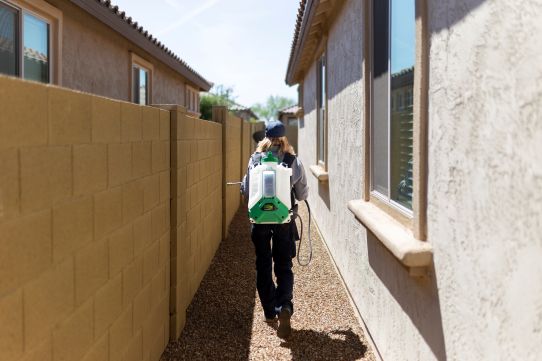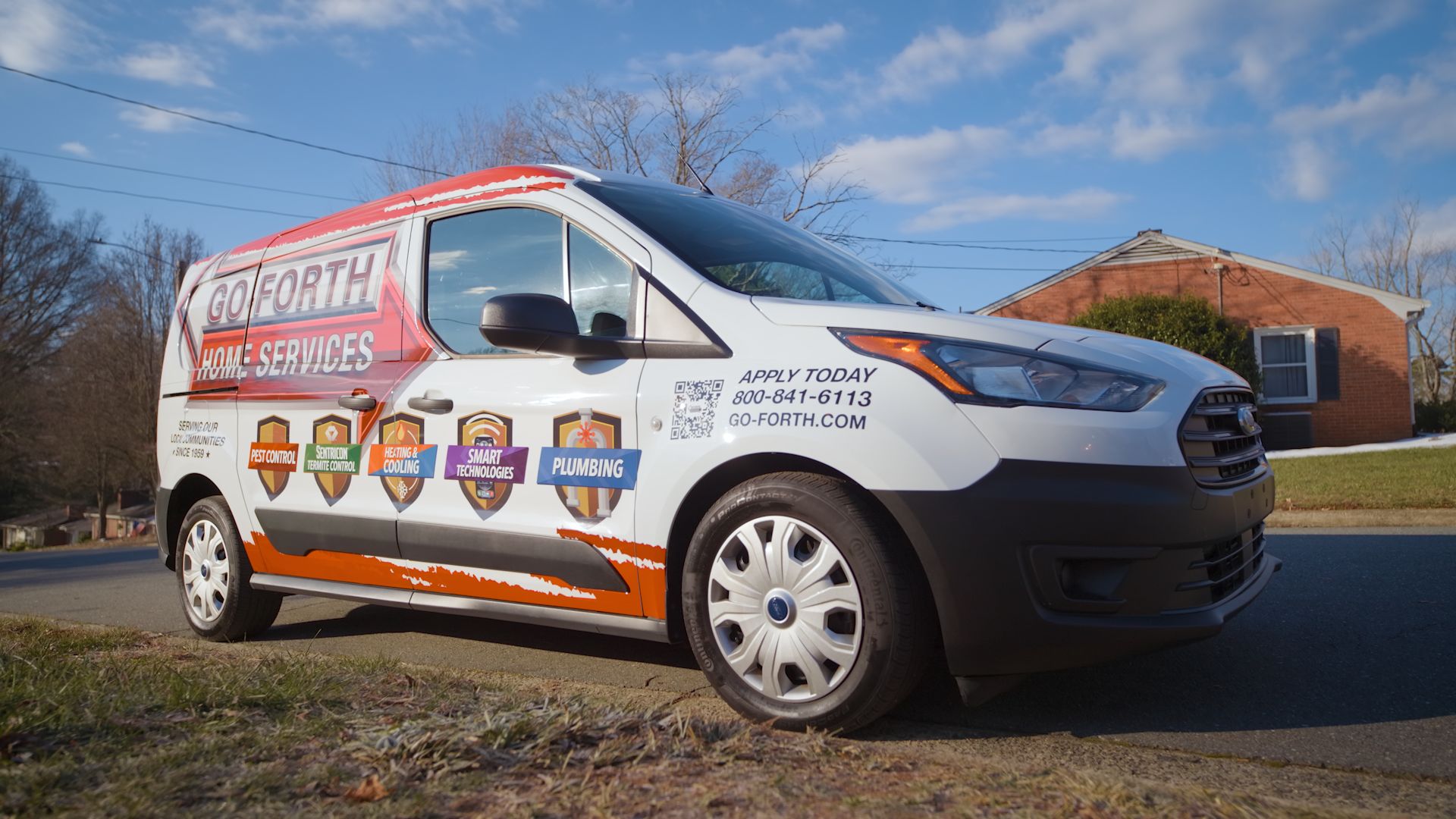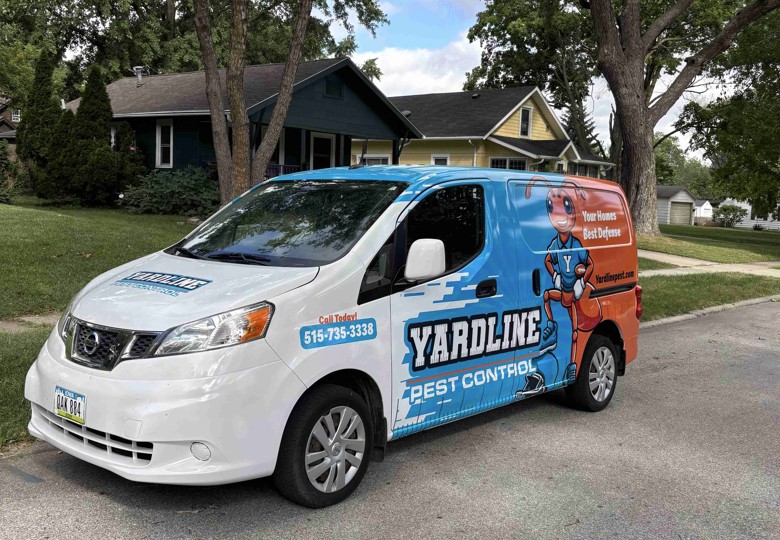Wisconsin Pest Control License & Certification (Updated in 2025)

Obtaining a pest control license in Wisconsin is essential for professionals looking to start or expand their pest control business. This guide breaks down the licensing requirements, certification process, and costs involved.
You'll learn about different license types, training programs, and exam details. We’ll also cover continuing education requirements, reciprocity agreements, and industry regulations.
You’ll have a clear roadmap to becoming a licensed pesticide applicator in Wisconsin by the end.
What Is a Pest Control License?
A pest control license allows individuals and businesses to legally apply pesticides in commercial, residential, and agricultural settings. In Wisconsin, all pesticide applicators must meet state licensing requirements set by the Wisconsin Department of Agriculture, Trade, and Consumer Protection (DATCP).
Whether you are a private applicator, a commercial applicator, or operating a pest control business, the state mandates proper training and certification. This ensures that pesticide use follows regulatory guidelines and protects public health, property, and the environment.
There are different license categories depending on the type of pest control work performed. Some licenses focus on structural pest control, while others specialize in fumigation, weed control, or wood-destroying organisms.
Failure to obtain a pesticide license before you apply restricted-use pesticides can result in penalties, fines, and legal action.
Do You Need a Pest Control License in Wisconsin?
If you plan to apply, sell, or supervise the use of pesticides in Wisconsin, you likely need a pest control license. The Wisconsin Department of Agriculture, Trade, and Consumer Protection (DATCP) requires certification for commercial and private applicators handling restricted-use pesticides (RUPs).
Even if you only apply general-use pesticides as part of a pest control business, licensing may still be necessary. Always check Wisconsin’s regulatory requirements to ensure compliance with state laws.
What Are the Licensing Requirements for Pest Control Contractors in Wisconsin?
Becoming a licensed pest control contractor in Wisconsin requires certification, licensing, and compliance with state regulations. The Wisconsin Department of Agriculture, Trade, and Consumer Protection (DATCP) oversees pest control licensing and ensures that applicators follow pesticide safety regulations.
Whether you are a commercial or private applicator or own a pest control business, you must meet specific licensing requirements. Applying restricted-use pesticides (RUPs) without a valid license is illegal and can lead to penalties and fines.
Each pest control professional must hold certification in the correct category based on the type of pesticide application they perform. Wisconsin recognizes multiple license categories, including structural pest control, fumigation, weed control, and wood-destroying organisms.
In addition to passing the licensing exam, applicants may need to provide proof of insurance and pay annual license fees. Businesses must provide proof of necessary insurance through a Certificate of Insurance Form submitted by their insurance company. Wisconsin also requires continuing education units (CEUs) to keep licenses valid.
Wisconsin Pest Control Licensing Requirements:
Certification in a specific pesticide category (valid for five years).
Commercial Applicators License (must be renewed annually).
Pesticide Business License for those operating a pest control company.
Training materials and study guides must be obtained from the University of Wisconsin PAT Program.
Pass the Wisconsin pesticide applicator exam before applying for a license.
Annual license renewal is required for continued compliance.
Proper licensing ensures that pest control operators follow Wisconsin's regulatory standards, maintain safety protocols, and provide professional pest management services.
What Are the Different Types of Pest Control Licenses in Wisconsin?
Wisconsin offers several types of pest control licenses based on the type of pesticide application and the environment in which they are used. The Wisconsin Department of Agriculture, Trade, and Consumer Protection (DATCP) classifies pesticide applicators into different categories.
Each category requires specific certification, licensing, and renewal processes to ensure safe and effective pesticide use. Private applicators can only apply restricted-use pesticides on property that they or their employer owns or controls.
License Categories and Descriptions
License Category | Description |
Commercial Applicator License | Required for individuals applying pesticides for hire in residential, commercial, or agricultural settings. Must be renewed annually. |
Private Applicator License | Required for farmers and agricultural workers applying restricted-use pesticides on their own or their employer's property. Valid for five years. |
Pesticide Business License | Required for pest control companies that employ licensed applicators. Covers liability insurance and business operations compliance. |
Structural Pest Control Applicator | Covers the application of pesticides for indoor and outdoor structural pest control, including termites, rodents, and insects. |
Fumigation Applicator | Required for individuals handling fumigation treatments in grain storage, soil, and structural pest control. |
Weed Control Applicator | Covers the application of herbicides for controlling weeds and invasive plants on farms, rangeland, and public areas. |
Wood-Destroying Organisms Applicator | Focuses on pest control treatments for termites, carpenter ants, and wood-boring insects in residential and commercial structures. |
Aquatic Pest Control Applicator | Pesticides must be applied in lakes, ponds, and other water bodies to control algae, weeds, and aquatic pests. |
Each license type requires certification in a specific pesticide category, passing a licensing exam, and maintaining continuing education credits for renewal.
What Are the Steps to Get a Pest Control License in Wisconsin?
Obtaining a pest control license in Wisconsin requires completing training, passing an exam, and meeting state regulatory requirements. The Wisconsin Department of Agriculture, Trade, and Consumer Protection (DATCP) oversees pest control licensing and certification.
Step 1: Determine the Right License Type
Identify which type of pesticide applicator license you need based on the services you plan to provide:
Private Applicator License – For farmers and individuals applying restricted-use pesticides on their own or their employer’s property.
Commercial Applicator License – Required for individuals applying pesticides for hire in residential, commercial, or agricultural settings.
Pesticide Business License – Required for companies operating a pest control business that employs licensed applicators.
Step 2: Complete Training and Obtain Study Materials
Applicants must purchase training materials from the University of Wisconsin Pesticide Applicator Training (PAT) Program. Training is available for different license categories, including structural pest control, fumigation, and weed control.
Step 3: Register and Take the Wisconsin Pesticide Licensing Exam
Register for the Wisconsin pesticide applicator exam through the DATCP website or schedule an in-person test at a proctored testing center. Exam options include:
Paper-based test (free) at proctored locations
Computer-based test through Pearson Vue for a $45 convenience fee
In-person training and testing through the University of Wisconsin PAT Program (available seasonally)
Step 4: Pass the Licensing Exam
A passing score is required before applying for a Wisconsin pesticide applicator license. Certification remains valid for five years, after which recertification is required.
Step 5: Submit Your License Application
After passing the exam, submit a pesticide applicator license application to DATCP and the $45 license fee (including the ACCP surcharge). You can apply online through MyDATCP or by mail.
Step 6: Obtain a Pesticide Business License (If Applicable)
If you plan to operate a pest control company, apply for a Pesticide Business License. This requires:
Proof of liability insurance
A valid business license
At least one certified applicator on staff
Step 7: Maintain Certification Through Continuing Education
Wisconsin requires continuing education courses or recertification exams before a license expires. These courses are essential for commercial applicators to maintain their active licenses, highlighting the need for recertification through such educational training every few years. Failing to renew on time may result in penalties, re-examination, or loss of certification.
Following these steps, you can become a certified applicator and legally provide pest control services in Wisconsin.
What Is the Mean Salary for a Pest Control Technician in Wisconsin?
As of March 2025, the average salary for a pest control technician in Wisconsin is approximately $20.97 per hour, equating to an annual salary of around $41,600. Salaries vary based on experience, location, and employer.
Average Salaries in Wisconsin Cities:
Menomonee Falls – $23.08 per hour
Janesville – $21.37 per hour
Green Bay – $21.28 per hour
Waukesha – $21.12 per hour
Milwaukee – $20.76 per hour
Entry-level positions in Wisconsin start at approximately $35,401 per year, while experienced technicians can earn up to $50,000 annually. These variations highlight the importance of location, experience, and employer when evaluating potential earnings in the pest control industry.
What Business Owners Need to Know
Starting a pest control business in Wisconsin requires more than just a pesticide applicator license—you must also obtain a Pesticide Business License from the Wisconsin Department of Agriculture, Trade, and Consumer Protection (DATCP). Each business must have at least one certified commercial applicator on staff to provide pest control services legally.
Addressing pest infestations quickly is critical, as pests can damage property, health, and businesses. Ensuring proper licensing, training, and compliance helps maintain industry standards and customer trust. Focusing on consumer services is also essential for enhancing customer experience and confidence.
Commercial Pest Control Businesses Must:
Provide proof of liability insurance covering pesticide applications.
Secure a Pesticide Business License for any company applying pesticides for hire.
Maintain detailed pesticide application records to comply with Wisconsin’s regulatory laws.
Ensure all technicians working under a licensee hold proper applicator certification.
Follow state and federal pesticide regulations, including worker safety and environmental laws.
Using FieldRoutes’ pest control software can help business owners streamline operations, manage customer data, automate scheduling and invoicing, and ensure regulatory compliance.
How Much Does It Cost To Get A Pest Control License?
In Wisconsin, obtaining a pest control license involves several costs, including training materials, certification exams, and licensing fees.
Training Materials: Purchasing a training manual is mandatory and costs $40 for a PDF version or $50 for a printed manual.
Certification Exam: The Wisconsin Department of Agriculture, Trade and Consumer Protection (DATCP) offers a free exam, while Pearson Vue charges a $45 fee for computer-based testing.
Individual Commercial Applicator License: After passing the exam, applicators must obtain a Commercial Applicator License, which costs $40 annually.
Agrichemical Cleanup Program (ACCP) Surcharge: An additional $5 surcharge is added to the applicator license fee, for a total of $45.
Pesticide Business License: If operating a pest control business, owners must obtain a Pesticide Business License for $70 per location annually.
Fees may change, so verify current costs with Wisconsin regulatory agencies before applying.
How to Get a Pest Control License in Wisconsin
Becoming a licensed pest control applicator in Wisconsin requires completing training, passing an exam, and obtaining necessary certifications to meet state regulatory requirements.
The Wisconsin Department of Agriculture, Trade, and Consumer Protection (DATCP) oversees pest control licensing and certification to ensure pesticide applications comply with state and federal regulations.
Step 1: Determine the Right License Type
Before starting the process, decide which pesticide applicator license you need:
Private Applicator License – Required for farmers and agricultural workers applying restricted-use pesticides on their own or their employer’s property.
Commercial Applicator License – Needed for individuals applying pesticides for hire in residential, commercial, or agricultural settings.
Pesticide Business License – Required for pest control companies employing licensed commercial applicators.
Work Experience
Wisconsin does not require minimum work experience before applying for a pesticide applicator license.
However, applicants must complete state-approved training and pass the required exams before receiving certification.
Some employers may prefer applicants with previous pest control work experience before hiring.
Apply to Take the Examination
Purchase training materials from the University of Wisconsin Pesticide Applicator Training (PAT) Program.
Schedule the Wisconsin pesticide applicator exam online or at a proctored testing center.
Choose between:
A free, paper-based exam at DATCP-approved locations.
A computer-based test through Pearson Vue for a $45 fee.
An in-person training session followed by an exam (seasonally available).
A passing score is required before applying for a Wisconsin pesticide applicator license. Certification remains valid for five years.
State Contractor License (For Pest Control Businesses)
If you plan to operate a pest control company, you must obtain a Pesticide Business License from DATCP.
Requirements include:
Proof of liability insurance for pesticide applications.
A valid business license registered with the state of Wisconsin.
At least one certified commercial applicator on staff.
Business licenses must be renewed annually to remain compliant.
Maintaining active certification and following Wisconsin pesticide regulations ensures that you can legally provide pest control services while protecting public health and the environment.
How Long Does It Take To Get A Pest Control License?
In Wisconsin, obtaining a pest control license typically takes a few weeks to a few months, depending on how quickly applicants complete training, pass the exam, and submit their license application.
The Wisconsin Department of Agriculture, Trade, and Consumer Protection (DATCP) processes applications after candidates pass the required exams. Most licenses are issued within 2-4 weeks of submission.
Wisconsin Pest Control Training Programs And Schools
Aspiring pest control professionals in Wisconsin have access to several state-approved training programs to meet licensing and certification requirements. These programs cover pesticide safety, application techniques, and regulatory compliance to ensure that all applicators meet Wisconsin Department of Agriculture, Trade and Consumer Protection (DATCP) standards.
University of Wisconsin's Pesticide Applicator Training (PAT) Program
Provides training materials and resources for both private and commercial pesticide applicators.
Offers certification exam preparation and study materials.
Covers pesticide laws, safety, and application techniques.
Training materials can be purchased through the PAT Program's website.
Wisconsin Department of Agriculture, Trade and Consumer Protection (DATCP)
Oversees the certification and licensing of pesticide applicators in Wisconsin.
Provides information on certification categories and licensing requirements.
Offers online exam scheduling through the DATCP's online scheduling system.
Wisconsin Pest Control Association (WPCA) Master Tech Program
A qualification for pest control professionals currently working in the industry.
It requires at least three years of experience in the industry or one year of certification in three or more pesticide categories.
The exam is offered annually at the Midwest PestCon.
More information is available on the WPCA Master Tech Program page.
Completing state-approved training ensures pest control applicators gain the necessary knowledge to pass certification exams and operate legally and safely in Wisconsin.
Wisconsin Licensing Exam Details
To become a licensed pest control applicator in Wisconsin, candidates must complete certification, pass an exam, and meet regulatory requirements. The Wisconsin Department of Agriculture, Trade, and Consumer Protection (DATCP) oversees this process to ensure all applicators comply with state and federal pest control laws. Restricted-use pesticide licenses last for four years and expire at the end of the month they were issued.
Certification Requirements
Before obtaining a pest control license, individuals must first earn commercial certification in their chosen category. Certification requires passing a category-specific exam. Some of the key certification categories include:
Field & Vegetable Crops (1.1) – The Application of pesticides to field and vegetable crops, including planter-box treatments.
Fruit (1.2) – The Application of pesticides to agricultural fruit crops, including small fruits, tree fruits, and nuts.
Turf & Landscape (3.0) – This refers to applying pesticides to turf and landscape areas.
Aquatic & Mosquito (5.0) – This is the Application of pesticides to standing or running water, including wetlands, to control aquatic pests and mosquitoes.
Right-of-Way & Natural Areas (6.0) – Apply pesticides to rights-of-way and natural areas.
Structural (7.1) – Apply pesticides in or around food-handling establishments, human dwellings, institutions such as schools and hospitals, industrial establishments including warehouses and grain elevators, and any other structures and adjacent areas.
Space & Commodity Fumigation (7.2) – The Application of fumigants to control pests in structures, commodities, or other enclosed areas.
Termite (7.3) – Application of pesticides to control termites.
Wood Preservation (7.4) – The Application of pesticides to wood products to protect them from damage by insects, fungi, or marine organisms.
Sewer Root (7.5) – This is the Application of pesticides to control roots in sewer systems.
For a full list of certification categories, applicants should refer to DATCP’s official guidelines.
Exam Details
Preparation – Each certification exam is based on the appropriate category-specific training manual. Reading and studying the manual is essential for success.
Format – Exams consist of approximately 70 multiple-choice questions.
Scheduling – Commercial applicators who purchase the training materials and do not attend a training session must schedule an exam with DATCP. Exams are available year-round at various locations across Wisconsin. There is no cost to take the exam at a DATCP location. Exam results are typically processed within 2-3 weeks.
Passing Score – A minimum score of 70% is required to pass the exam.
Upon passing the exam, individuals can apply for their commercial applicator license through DATCP. Licenses are valid for one year and must be renewed annually.
Who Issues Pest Control Licenses in Wisconsin?
The Wisconsin Department of Agriculture, Trade and Consumer Protection (DATCP) issues pest control licenses in the state and oversees certification, licensing, and regulatory compliance for pesticide applicators, pest control businesses, and pesticide dealers.
Individuals must pass certification exams to legally apply pesticides in Wisconsin and obtain the appropriate pesticide applicator license through DATCP. Certification is crucial for individuals and businesses involved in managing structural pests, outlining the requirements to perform structural pest control legally and effectively.
Does My Wisconsin Pest Control License Work in Any Other State?
Yes, Wisconsin has reciprocal agreements with several states, allowing certified pesticide applicators to obtain licensure without additional testing. However, verifying specific requirements with each state's regulatory agency is essential, as reciprocity arrangements can vary.
States with reciprocal agreements include:
Alabama
Alaska
Arizona
Arkansas
California
Colorado
Connecticut
Delaware
Florida
Georgia
Hawaii
Idaho
Illinois
Indiana
Iowa
Kansas
Kentucky
Louisiana
Maine
Maryland
Massachusetts
Michigan
Minnesota
Mississippi
Missouri
Montana
Nebraska
Nevada
New Hampshire
New Jersey
New Mexico
New York
North Carolina
North Dakota
Ohio
Oklahoma
Oregon
Pennsylvania
Rhode Island
South Carolina
South Dakota
Tennessee
Texas
Utah
Vermont
Virginia
Washington
West Virginia
Wyoming
For detailed information on reciprocity and application procedures, consult the Wisconsin Department of Agriculture, Trade, and Consumer Protection (DATCP).
Pesticide Applicator Specific Requirements: EPA Certification
The Environmental Protection Agency (EPA) sets federal standards for pesticide applicators handling Restricted pesticide use (RUPs). These pesticides require specialized training to ensure safe and effective application while protecting public health and the environment.
Certification Requirements for Wisconsin Applicators
All commercial and private pesticide applicators handling RUPs must be certified through the Wisconsin Department of Agriculture, Trade, and Consumer Protection (DATCP).
Certification involves passing a core and category-specific exam based on the type of pest control work performed.
Wisconsin pesticide applicators working in Indian Country must also obtain federal certification from the EPA and state licensing.
EPA Certification and Compliance
The EPA oversees pesticide applicator certification programs but allows states like Wisconsin to administer their certification systems.
Certified applicators must comply with Worker Protection Standards (WPS), pesticide safety regulations, and recordkeeping requirements.
Continuing education and periodic recertification are required to maintain pesticide applicator status.
Wisconsin applicators working outside the state should verify if additional federal or state-level requirements apply to their work.
What Happens If My Pesticide License Expires?
If your Wisconsin pesticide license expires, you cannot legally apply Restricted Use Pesticides (RUPs) until you renew your certification. To reinstate an expired license, you must retake the certification exam or complete the required continuing education units (CEUs) before applying for renewal.
Failure to renew on time may result in penalties, additional fees, or the need to restart the certification process.
Other Requirements Unique to Wisconsin
Wisconsin has specific regulations for pesticide applicators, pest control businesses, and pesticide dealers beyond standard licensing and certification. These rules ensure environmental safety, worker protection, and compliance with state laws.
Annual License Renewal—All commercial pesticide applicator licenses must be renewed each year, and they are valid from January 1 to December 31.
Applicator Certification Validity—Pesticide applicator certification remains valid for five years before requiring renewal through recertification exams or continuing education units (CEUs).
Business Licensing – Pest control businesses applying pesticides for hire must obtain a Pesticide Business License (PBL) and individual applicator licenses.
Pesticide Use Near Water – Applicators working near lakes, rivers, or wetlands must comply with additional Wisconsin Department of Natural Resources (DNR) permitting requirements.
Storage and Disposal Regulations – Wisconsin enforces strict pesticide storage, transport, and disposal guidelines to prevent environmental contamination and public health risks.
Understanding and following Wisconsin’s unique requirements helps ensure legal compliance and protects both businesses and consumers.
Continuing Education
Licensed pesticide applicators in Wisconsin must complete continuing education units (CEUs) to maintain their certification and comply with state regulations. The Wisconsin Department of Agriculture, Trade, and Consumer Protection (DATCP) requires applicators to attend approved training sessions covering pesticide safety, regulations, and best practices.
CEU Requirements by Certification Type
Commercial Applicators – Must earn CEUs based on their certification category, typically renewing every five years through approved training or by passing a recertification exam.
Private Applicators – Required to complete recertification training every five years through CEUs or by retaking the certification exam.
Non-Commercial Applicators – Must comply with CEU requirements similar to commercial applicators if applying Restricted Use Pesticides (RUPs).
CEUs can be earned through in-person workshops, online training, industry conferences, or university-led programs. Failure to meet CEU requirements may result in license suspension or the need to retake certification exams.
Resources
Here are some valuable resources for obtaining and maintaining a pest control license in Wisconsin:
Wisconsin Department of Agriculture, Trade, and Consumer Protection (DATCP)
University of Wisconsin Pesticide Applicator Training (PAT) Program
EPA Certification of Pesticide Applicators National Pest Management Association (NPMA)
Using these resources helps Wisconsin pest control businesses comply with state and federal regulations while keeping up with industry best practices.
Ready to Get Certified?
Obtaining your pest control license in Wisconsin is a critical step toward building a stable and rewarding career in the pest management industry. With the proper applicator certification, you can work as a licensed pesticide applicator or even launch your own pest control business.
Once you’ve completed the required training, passed the licensing exam, and met all Wisconsin Department of Agriculture, Trade, and Consumer Protection requirements, you’ll be ready to provide professional pest control services nationwide.
Visit the FieldRoutes Blog to explore insights on commercial pest control and discover how FieldRoutes software can help you automate scheduling, optimize routes, and streamline operations.
Stay informed, leverage industry resources, and take the next step toward becoming a certified applicator in Wisconsin today!





